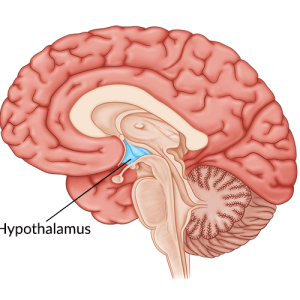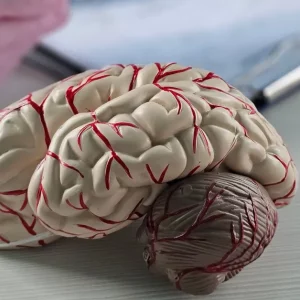Mild traumatic brain injury (TBI) may be more serious than many people realize. If the proper steps are not taken, patients can experience symptoms for months, sometimes years, after their injury.
That’s why it is crucial to take the right approach to mild traumatic brain injury recovery from the beginning. With a good treatment plan, you can give your brain the tools it needs to heal successfully from mild traumatic brain injury.
To help you identify and treat mild traumatic brain injury, this article will discuss:
- What is considered a mild TBI?
- Signs and symptoms of mild TBI
- When to seek medical attention
- Mild TBI recovery techniques
- Average recovery time
What Is Considered a Mild Traumatic Brain Injury?
A mild traumatic brain injury refers to a bump or a blow to the head and may also be referred to as a concussion. Sometimes the injury causes the brain to rapidly move back and forth inside the skull. In these cases, the brain is damaged at the impact site and also the opposite side of the brain.
This is described as a Coup-Contra Coup brain injury and describes two brain injuries occurring from one trauma to the head. The disruption of brain function usually results in a loss of consciousness that lasts for less than 30 minutes for mild traumatic brain injuries.
A traumatic brain injury is classified as “mild” if the individual scores 13 or higher on the Glasgow Coma Scale. Mild traumatic brain injury can be caused by various events, including falls, car accidents, violence, sports-related injuries, or explosive blasts.
Depending on the context, people may also refer to mild traumatic brain injury as a concussion. These terms are generally used interchangeably. However, recently some medical specialties have begun to try to distinguish them, with concussion referring to an even milder version of a mild traumatic brain injury.
As there has been no clear consensus yet as to what separates a concussion from a traumatic brain injury, we’ll be using these terms interchangeably throughout this article.
Signs and Symptoms of Mild Traumatic Brain Injury
Some of the most common signs and symptoms of mild traumatic brain injury include:
- Poor concentration
- Noise or light sensitivity
- Memory problems
- Headaches
- Dizziness/loss of balance
- Depression, anxiety, irritability, or feeling over-emotional
- Confusion
- Sleep changes and fatigue
- Vision problems
These signs and symptoms are a normal part of mild traumatic brain injury and are not necessarily signs of permanent damage. They should subside as your brain heals.
However, there are some potential long-term effects of concussion to be aware of. Talk to your doctor if you’re concerned you have lingering effects.
Many concussion symptoms can also occur after an injury to the neck, known as whiplash. Whiplash and mild traumatic brain injury frequently co-occur and may result in identical symptoms, but are separate conditions that require separate treatments.
When to Seek Medical Attention for Mild Traumatic Brain Injury

Most concussion symptoms will resolve on their own, but some can turn in to life-threatening conditions.
Seek immediate medical attention if any of these symptoms are present:
- Dilated pupils
- Vomiting
- Loss of consciousness, even if only briefly
- Seizures
- Slurred speech
- Any amount of amnesia or loss of memory of the event
- For young children, any scalp swelling or unusual behavior, particularly uncontrollable crying
Once you’ve been treated for any serious complications from your mild traumatic brain injury, you can begin working on your recovery by using the techniques in the following sections.
Mild Traumatic Brain Injury Recovery Techniques
Mild traumatic brain injury recovery can take some time. However, there are some proven ways to promote a faster recovery. These include:
- Cognitive rest. After a concussion, the brain devotes most of its energy towards healing itself. This leaves fewer cognitive resources to perform other actions. Practicing cognitive rest simply means avoiding all mentally taxing activities, such as driving, studying, or using smartphones or computers. After a few days, you can gradually increase these activities again.
- Sleep. Sleep is a restorative state that allows your brain to recover from stress and injury. This makes sleep one of the most important parts of concussion recovery.
- Exercise. Studies show that low-impact exercise, such as low-intensity walking, contributes to a reduction of symptoms in those with mild traumatic brain injury and shortens recovery time.
- Hydrate. Dehydration impairs the brain’s ability to repair itself. Therefore, to promote a healthy recovery from mild TBI, try to drink at least half of your body weight in ounces every day.
- Avoid Alcohol. Avoid consuming alcohol for the first few days after your concussion. Alcohol contains neurotoxins that damage your brain cells and hamper your brain’s healing process.
- Eat healthy. Make sure you consume foods that help heal the brain after a concussion, such as foods rich in omega-3 fatty acids and antioxidants. These will stimulate your brain’s production of new nerve cells and accelerate the healing process.
These methods should help reduce your overall recovery time. As always, talk to your doctor if your symptoms decline or do not improve.
Want 20 pages of brain injury recovery tips in PDF form? Click here to download our free ebook “15 Things Every TBI Survivor Must Know” (link opens a pop up for uninterrupted reading)
Mild Traumatic Brain Injury Recovery Time
The average recovery time for a mild traumatic brain injury is less than 14 days for most adolescents without a history of motion sickness or migraine. For older individuals, it can take a little longer, but even then, symptoms typically only last about three to four weeks.
If your concussion symptoms last for more than a month, you may have developed post-concussion syndrome. There is no need for alarm if that is the case. Even though it can take a long time, it is possible to treat post-concussion syndrome and make a full recovery.
Recovering from Mild Traumatic Brain Injury
Symptoms of mild traumatic brain injury can be more severe than many people realize. However, most individuals will make a full recovery, as long as they don’t overexert themselves.
If you allow yourself enough rest, stay hydrated, and gradually increase your activities, your symptoms should improve quickly. We hope this guide helps you take the steps needed to fully recover from concussion.









